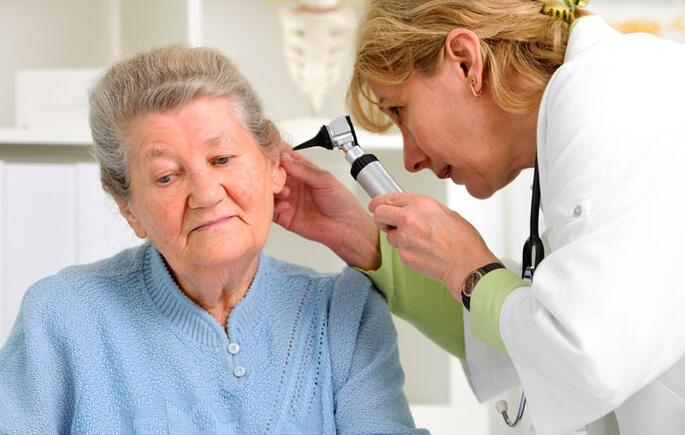Many people with mild to moderate symmetrical sensorineural deafness have doubts about whether their hearing will be the same as that of a normal person after wearing a hearing aid.If you want to know the answer, please read below.
Audiologists in the United States recently completed an experiment. They evaluated 43 hearing-impaired individuals with an average age of 68 years in two separate locations. All participants presented with mild to moderate symmetrical sensorineural deafness. The researchers evaluated the participants with both noise-induced speech tests and hearing tests to assess the entire process. A comparison of various parameters showed that hearing-impaired patients could benefit immediately from wearing hearing aids, such as a reduction in hearing threshold (the lowest level of intensity at which a signal can be heard with a hearing aid), improved hearing performance in a hazardous signal-to-noise environment, and improved self-perception of sound. And, these gains also showed a weak trend of sustained improvement over the course of the 30-day testing period. During the test, subjects wore their hearing aids for an average of 10 hours or more per day.
In short, the results of the above study show that with proper use of hearing aids, the benefits of hearing aids can be evident in as little as one month. However, to achieve satisfactory hearing aid results, the following influencing factors should be taken into account.
1、The degree and nature of individual hearing loss
2、The duration of deafness
3、Hearing aid performance
4、Wearing in one ear (hearing loss in both ears)
5、Selecting and commissioning by the fitter
6、First time wearer (still in the adaptation period)
7、The working condition of the hearing aid is not good
8、Noisy environment
9, personal expectations are too high (hearing aids can not reach normal hearing)
10、The correct concept of fitting
In addition to the science of hearing aid fitting, the correct concept of fitting is also important, especially for first-time users. The “three early” principles of early detection, early intervention and early rehabilitation have always been advocated. In countries where hearing care is well developed, people of all ages will make appointments to have their hearing checked as soon as they feel the hearing strain, even if they are very young and have only mild hearing loss, so their hearing sensitivity can be maintained at a good level. In many developing countries such as China, many patients expect to be “self-reliant” as long as they can still hear, and do not use aids as much as possible, and wait until they really can’t, then they come for hearing aids, and ask for immediate results, otherwise they are considered useless.
We recommend that.
①If deafness can be diagnosed early and active measures can be taken to promptly put into action the reuse of residual hearing, the hearing sensitivity at that time can be preserved to the maximum and effective rehabilitation of hearing can be guaranteed.
②Give each person who wishes to wear a hearing aid a month’s time, we can eventually feel the effect and therefore willing to use the hearing aid.
More articles about hearing aid information.
SELECTING BLUETOOTH HEARING AID: ALL THE THING YOU WANT TO KNOW
TOP 10 BENEFITS OF WEARING BINAURAL HEARING AIDS
SPIETH TAKES YOU THROUGH RIC HEARING AIDS IN ONE ARTICLE
HOW TO CHOOSE THE RIGHT HEARING AID PRODUCT?
INTRODUCTION OF RECHARGEABLE BTE OE HEARING AIDS
Post time: Sep-01-2021
